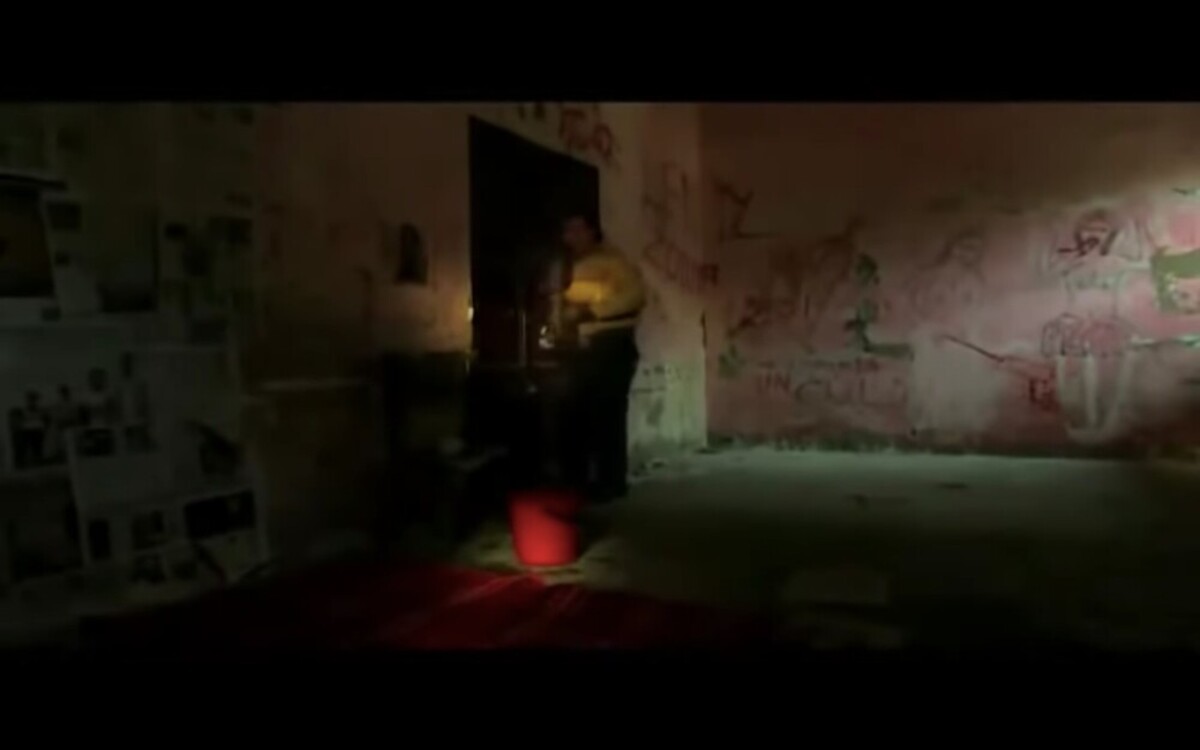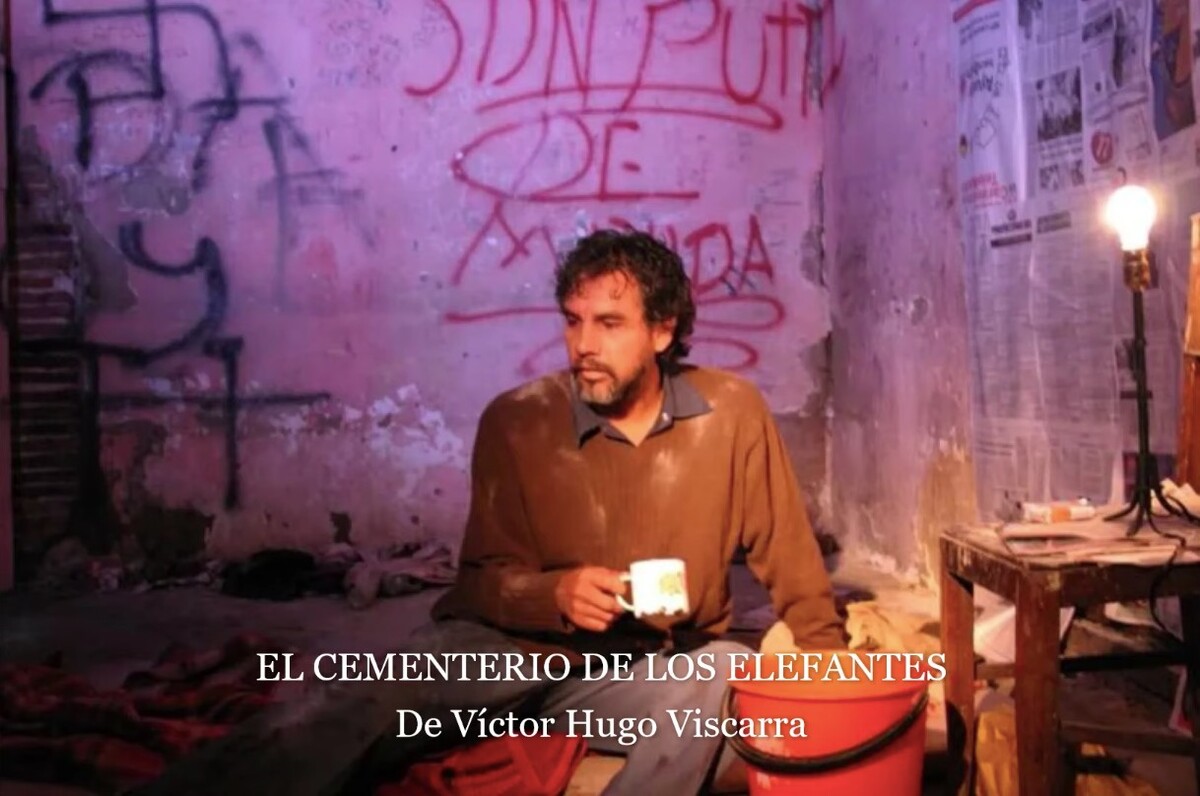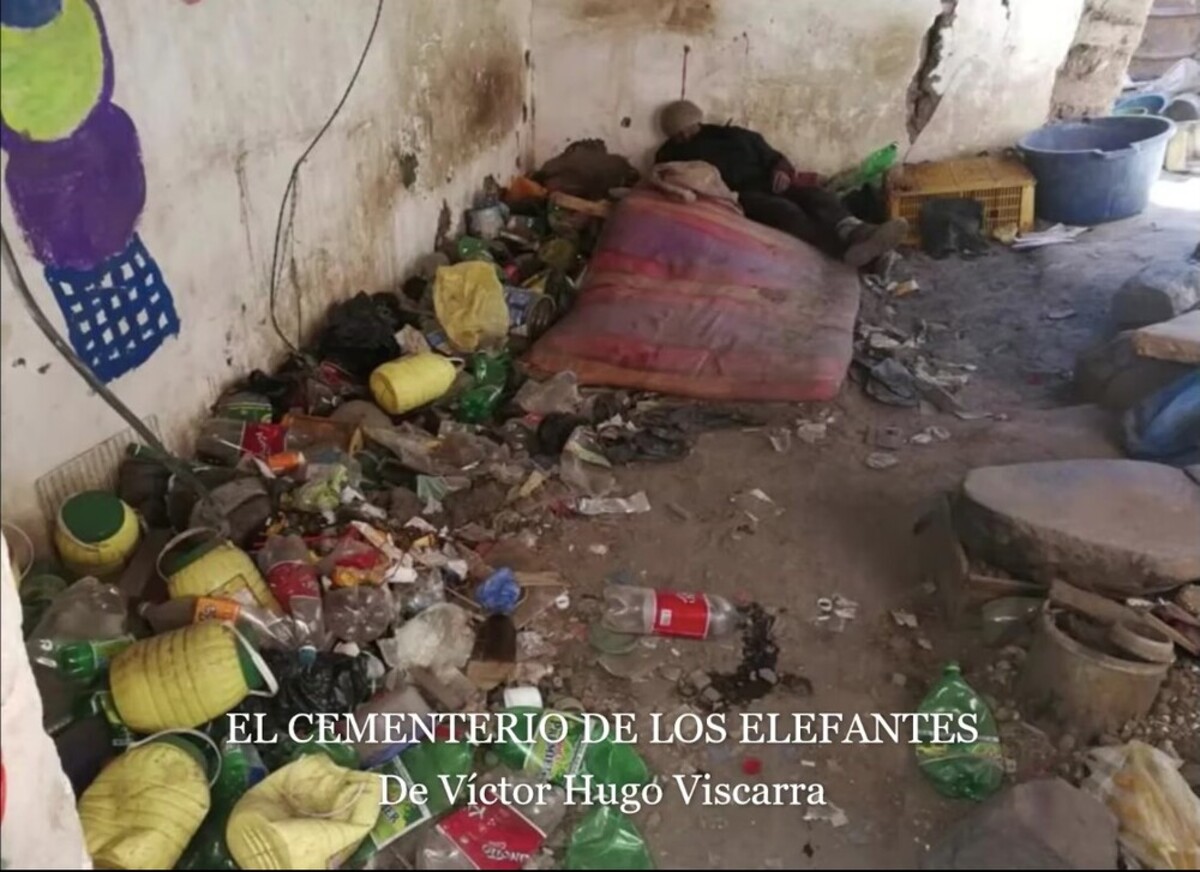"While the streets of La Paz are filling up with skyscrapers, the motionless bodies of the homeless, poisoned by alcohol, are lying on the sidewalks."
Bolivia is a country with a truly rich culture and traditions. This is also confirmed by the latest part of PPPetra's current documentary series, Expediton Unexpected: Latin America. In addition to various local rituals, it also marginally mentions the so-called Elephant Cemeteries.
They are bleak and scary places, most often dilapidated buildings that provide refuge for drunkards determined to end their miserable lives. On the cold floor, in the best case, on a dirty mattress, they can evaluate their own lives for the last time and drink themselves to death.
It is terrifying to imagine that such places exist somewhere in the world, but what is worse is that some locals associate them with human sacrifices. Local developers are said to walk around Elephant cemeteries looking for volunteers who, in exchange for alcohol, will allow themselves to be buried alive in the foundations of large buildings as part of a sacrificial ritual, in order to ensure their prosperity. Drunkards are promised a painless death in delirium.
Since it is almost unimaginable that something like this could still happen in today's world, we decided to take a closer look at the Elephant Cemeteries. Is this just a Bolivian local legend or is there enough evidence to confirm their existence?
Alcoholism: Scourge of the Bolivian population
Bolivian culture is more than friends with alcohol. Based on the statistics of the World Health Organization (WHO Global Alcohol Status Report) from 2018, we can even say that Bolivians have a significant problem with alcohol. This applies mainly to men.
Alcohol is consumed by approximately two-thirds of the male population in Bolivia, and for most of them it is not just an occasional drink. Almost all male consumers overdo it with alcohol, and 9.8 percent of them are demonstrably addicted. Since this percentage is much higher than the average of other countries, Bolivia is among the "top" countries in the world where alcohol destroys people's lives every day.

In Bolivia a 93-96 percent alcohol nicknamed Cocoro is extremely popular. As the Comida's portal writes, it is made from sugar cane, and it is not usually packaged in bottles, but in cans. Since it is really "ekrasite", the locals tend to dilute it with tea.
Bolivians love a good time with alcohol. However, the regular partying takes its toll on many of them, until they completely lose their inhibitions and fall into addiction. If this scenario comes true, they end up as homeless alcoholics pushed to the margins of society.
Knowing that they can no longer save their life on earth, some of them decide to try a new one beyond the unknown. For them, according to Bolivian urban legends, dark buildings nicknamed Elephant Cemeteries are often a transfer station on this road.
Elephant Graveyard: A Stopover on the Road to Oblivion
Shabby brick buildings overflowing with dirt and with boarded-up windows, from which every passer-by prefers to look away. Inside, veiled silhouettes of figures - drunkards - are hiding in the gloom. They toast their earthly life for the last time and bid farewell with the poison in their blood. This is roughly how the local residents describe the cemetery for the portal Bolivian Express.

As The Culture Trip portal explains, these are some kind of secret hotels or bars where local alcoholics who have given up on life go to drink themselves to death. Between the despair-soaked walls, they find nothing more than a dirty, unlit room with a cold cement floor, or an old tattered mattress to lie on as the life slowly drains from them.
As the portal goes on to write, locals deny that such buildings really exist in Bolivia. They regard them as just an urban legend, even though several witness statements and the interest of the local police confirm their existence.
Referring to a 2014 report by the American-Spanish Telemundo, The Culture Trip portal writes that after entering the building, alcoholics ask the owner to lock them inside until they drink themselves to death. If by chance one of them changes his mind, he can ring the bell and leave. Just the thought of the existence of such buildings somewhere in the world inspires horror, but the offers for the "last deal" that some visitors to the Elephant Cemeteries are supposed to receive sound even more terrifying.
Last Deal: They sacrifice a human to make the building prosper
Even before we explain to you what we mean by the word "last trade", it is important to mention that a strong part of Bolivian culture are their religions and centuries-old traditions. As part of their faith, they still practice various rituals.
One of the most famous ceremonies is the sacrificial ritual for the Earth goddess nicknamed Pachamama. During the ritual, worshipers offer various "gifts" to the goddess by burning them. These can include, for example, the fetus of a sheep, dried llama - Sulla, medicinal plants, eggs or even live animals. This way, the goddesses are thanked for taking care of humanity.

As The Spectator writes, rituals for Pachamama are practiced on a daily basis in Bolivia. You can get sacrificial "gifts" at every step, for example, you can buy the frequently used dried llama fruit at the witches' market in La Paz, where, in addition to sacrificial "gifts", souvenirs for tourists are also sold.
However, the burning of "gifts" is not the only kind of ritual. For example, householders tend to bury llama fetuses in the foundations of buildings in order to appease Pachamama, and she in turn protects them from tragedies or ensures prosperity. Of course, all rituals work in a way that the bigger the sacrifice you make to the gods, the more luck they will provide you.
According to The Spectator portal, local residents claim that drunkards who have decided to die in Elephant cemeteries are persuaded by architects and future owners of buildings to allow themselves to be buried alive in the foundations of buildings while drunk and in a state of delirium, thus undergoing a ritual of sacrifice.
The case that happened in La Paz in August of this year also confirms that something like this can really happen in Bolivia today. According to local media Página Siete, a 30-year-old man, Victor Mito Alvárez, was buried alive here.
"They buried me alive like a dried llama fetus. I woke up and realized I couldn't move. I was in a coffin," explained Mita Alvárez for Pagín Siete. According to him, he woke up among the foundations of the construction of a new building. The last thing he remembers is drinking a beer at a local bar a few hours earlier. An unknown man approached him, invited him for a drink, and from then on he did not remember anything.

The Spectator points out that there are more of such cases in Bolivia, but very few of them are officially reported or investigated. The case of Victoria Mita Alvarez will not be investigated either. His mother is said to have said that despite her son being traumatised by the experience, she "doesn't have enough money to pay off the police and prosecutors". She believes that without it they will not act on the matter.
However, if any case of human sacrifice in Bolivia could be confirmed and investigated, it would mean that the centuries-old local traditions were transformed into inhumane crimes.




